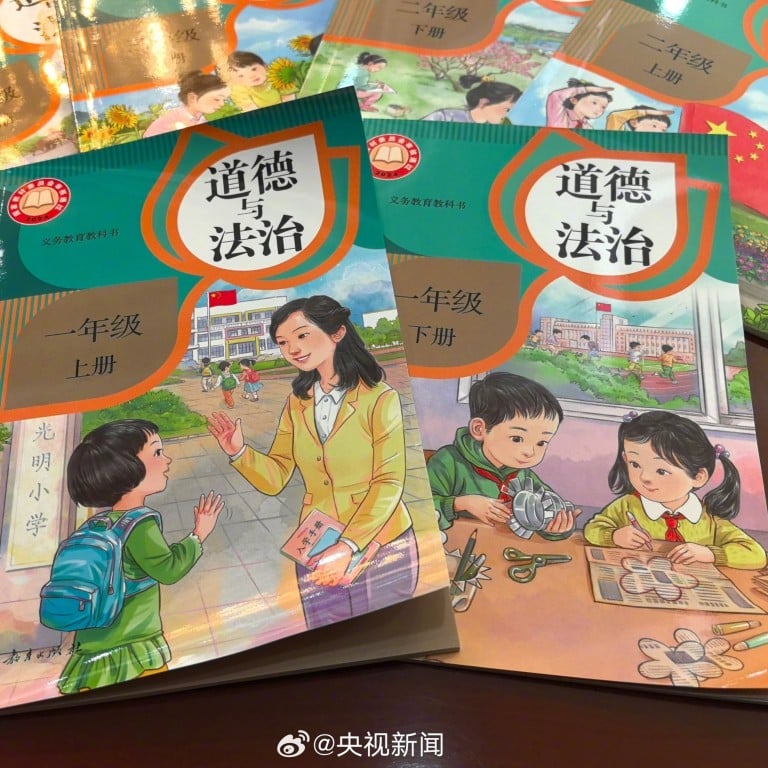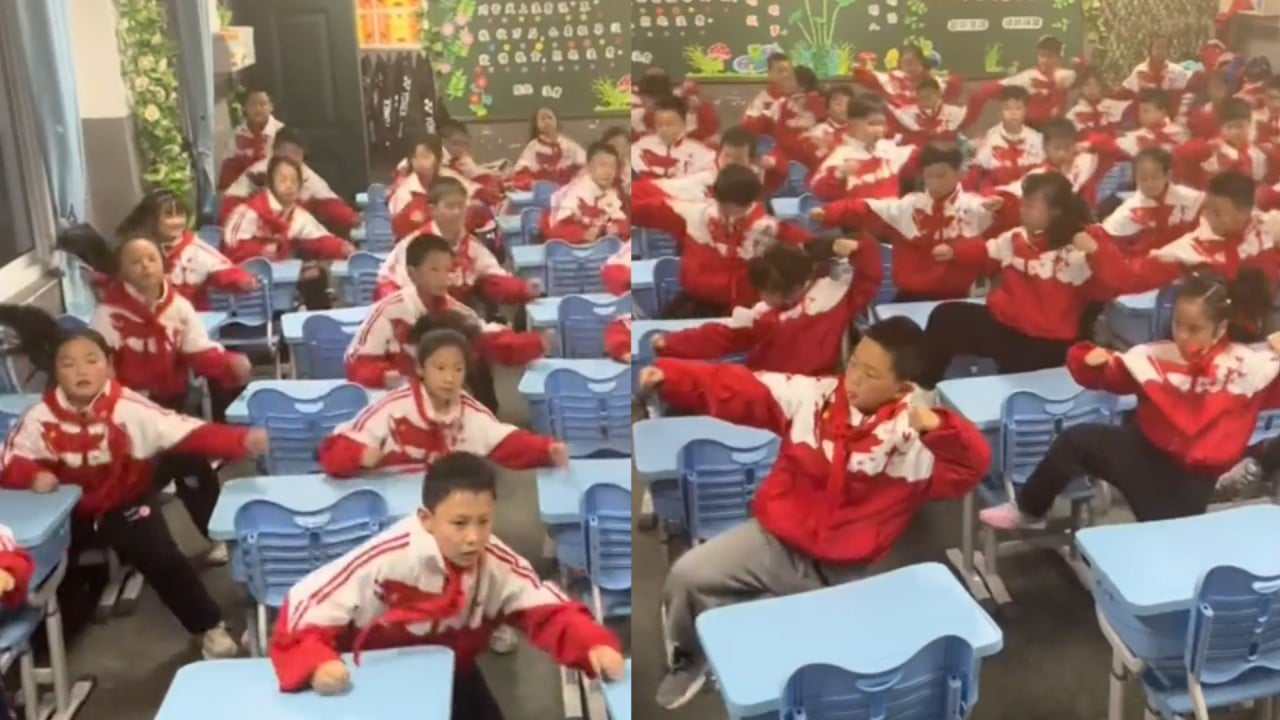
New Chinese textbooks play up national security, Xi Jinping Thought and Vietnam, India wars
New books on Chinese language, history, as well as morality and law to be handed out to junior and primary students at start of autumn semester
New Chinese school textbooks will give more space to national security and traditional culture in Beijing’s latest move to step up ideological propaganda and control.
Primary and junior high school students starting the autumn semester next week will be handed the new textbooks on Chinese language, history, as well as morality and law, state broadcaster CCTV said on Tuesday.
All Chinese nationals receive nine years of compulsory education, six in primary school and the rest in junior high. The new textbooks will initially be used in the first and seventh grades, and will be extended to all nine grades within three years, according to CCTV.
The new morality and law textbook would introduce the “main content and historical status” of Xi Jinping Thought, the report said.
Officially known as “Xi Jinping Thought on Socialism with Chinese Characteristics for a New Era”, Xi’s political philosophy was enshrined in China’s constitution in 2018.
However, it has expanded in recent years to include seven aspects, covering his instructions on economic, diplomatic, military and environmental matters, as well as the law, propaganda and party discipline.

Earlier this year, the study of these ideas was made a top priority for all party organisations across the country, with orders to hold regular meetings to study Xi’s speeches and directives.
The new history textbooks will include the brief but bloody border war in 1962 between China and India, which ended with India’s defeat after four weeks.
The 1979 China-Vietnam conflict will also feature in the new history books. Some 300,000 Chinese troops entered Vietnam to prevent Hanoi from overthrowing the Beijing-backed Khmer Rouge regime in Cambodia.
The conflict caused tens of thousands of casualties on both sides in what Beijing called a “self-defence war against Vietnam”.
However it has long been silent on the issue, including not organising public commemorations of its 40th anniversary in 2019 and trying to prevent veterans from paying tribute.
The Ministry of Education official quoted in the CCTV report said the new content would “allow students to deeply understand that national security is a top priority and that everyone has a responsibility to safeguard it”.
While more than 90 per cent of Chinese nationals are of Han ethnicity, the country is also home to 55 ethnic minority groups.
Meanwhile, the Chinese language textbooks will include more ancient Chinese literature and stories about the revolutionary years before the party won the civil war in 1949, establishing the People’s Republic.
The new textbooks took two years to compile and were used by more than 100,000 students in over 550 schools before being launched nationwide, CCTV said.


